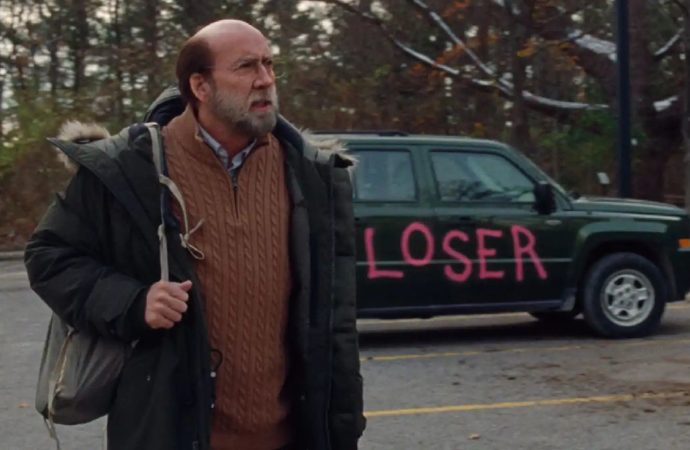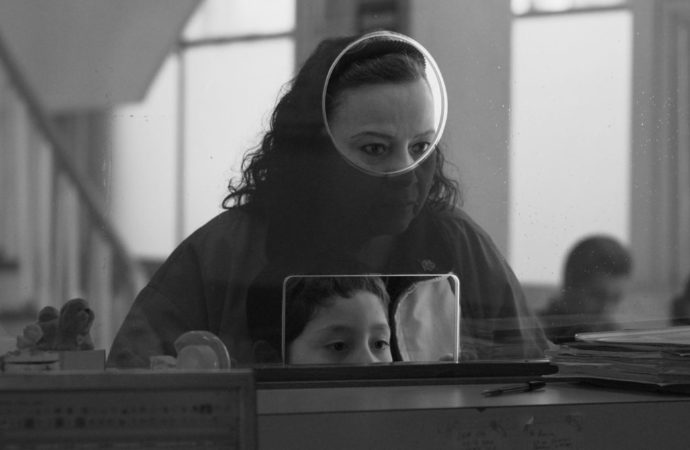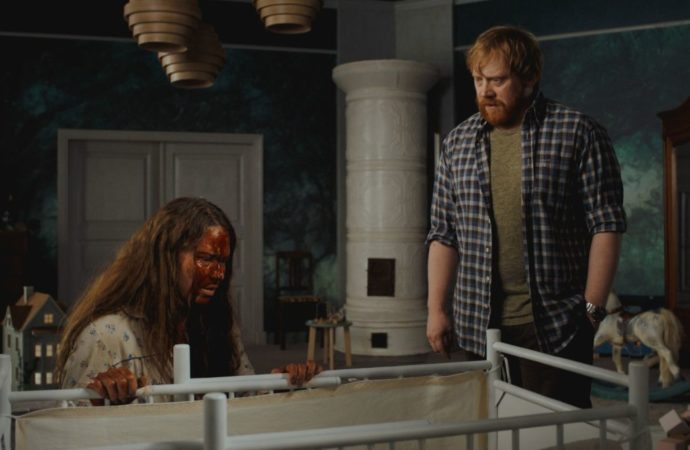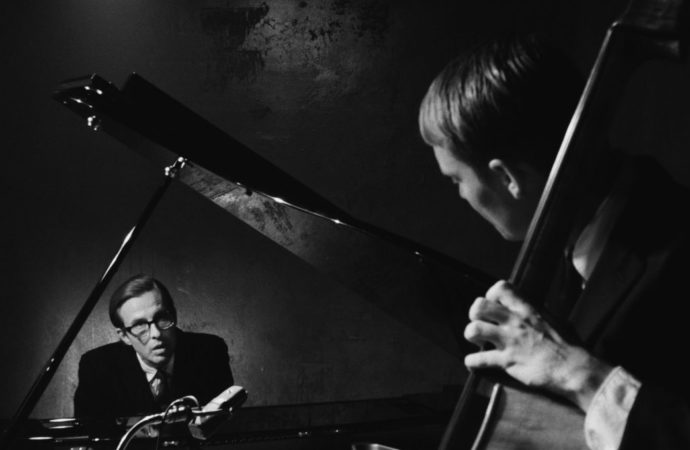That Kristoffer Borgli was very interested in viral fame could already be attested to by anyone who had seen his previous film, Sick of Myself (2022), but what he has done with Dream Scenario is to perfect it and deliver a social satire, surreal and metaphysical, about fame, virality, social networks, cancellation culture and other elements of the current media cycle that finds its main point of reference in the work of Charlie Kaufman, the main model for this black comedy about the absurd in which, as in the films written by the author of Synecdoche, New York (2008), the important thing is not so much the extraordinary things that happen, whether it’s getting into John Malkovich‘s head or becoming the person people dream about, but how the characters react to them and what they reveal about themselves.
Kaufman’s imprint is all over the film, but above all in its protagonist, this nobody who seems a sum of the two characters played by Nicolas Cage in Adaptation (2002), is something that reinforces the fact that Borgli has chosen Cage himself to play him, I think for two reasons, his connection with Kaufman and his myth as an actor/meme, which he already brought to his film The Unbearable Weight of Massive Talent (Tom Gormican, 2022), something that makes him perfect for the role, even though physically he was more along the lines of a Paul Giamatti.
The fact is that Dream Scenario works perfectly, although its debt to Kaufman is evident, from that initial scene in which we are introduced to the character, through the dream of one of his daughters where, basically, he does nothing, but we soon see that this is basically his attitude to life.
He is presented to us as an almost exact description of a total loser, a bald guy with an irritating voice and a slight hunchback, although, despite this, his life is not bad either, he has two daughters who love him, a wife who looks like the reincarnation of Shirley MacLaine (Julie Nicholson) and a job as a university lecturer. But Borgli knows that the natural state of being human is dissatisfaction, always longing for something more than what one has, he who has nothing wants something, he who has little wants a lot and he who has a lot wants more. Whatever it is, money, recognition, fame? You can be Michael Jordan and be recognized as the best of all time, but you can spend your whole life eating yourself up inside for not having been able to win one more title.
In Paul’s case, what he wants is to stand out more, if only to be recognized for his academic achievements, or for his daughters to be able to leave their mobile phones on the table so that they can talk at dinner, he wants to stop being anonymous, even if only a little. He will achieve this without having to do anything when he starts appearing in many people’s dreams as a passive object. Paul will want to use this stroke of luck to finally publish the book he never had time to write in the last 20 years, but to do so he will have to go through the most bizarre business meeting, with a guy —an excellent Michael Cera— who wants to put him in Barack Obama’s dreams or sell Sprite soft drinks in his subconscious.
The thing is that, even though as an evolutionary professor he should know that once you stand out you are out of sight of predators, Matthews can’t smile at a bit of recognition, ceasing to be invisible to others. So he becomes a kind of anti-Zelig, that Woody Allen character who mimicked, like a human chameleon, whatever was in front of him, be it a rabbi or a Nazi, and Matthews becomes a viral celebrity.
Dream Scenario exploits its subtle humor to perfection, such as the fact that while Paul is getting into the dreams of millions of people, his wife never has dreams about him, until it reaches its funniest and most awkward scene, with a simple perfect Cage, as the film moves into its third act.
From here, Dream Scenario tackles the cancellation culture, Matthews becomes a kind of Freddy Kruger and dreams turn into nightmares. This part doesn’t work so well, because although Paul is as pathetic and annoying as any of the online personalities that keep popping up on our computer, he hasn’t consciously done anything.
In the end, Borgli presents us with the ultimate nightmare involving influencers, dreams, and advertising, and it is then that Dream Scenario makes clear its theory about Warhol‘s current 15 minutes of viral fame and how technology has completely invaded us, making us forget that the most important things that happen in our lives don’t usually occur on a screen, but face to face with those who matter. Just as a thousand ‘likes’ can never replace a kiss, a hug, or a caress from someone we care about.









No one has posted any comments yet. Be the first person!